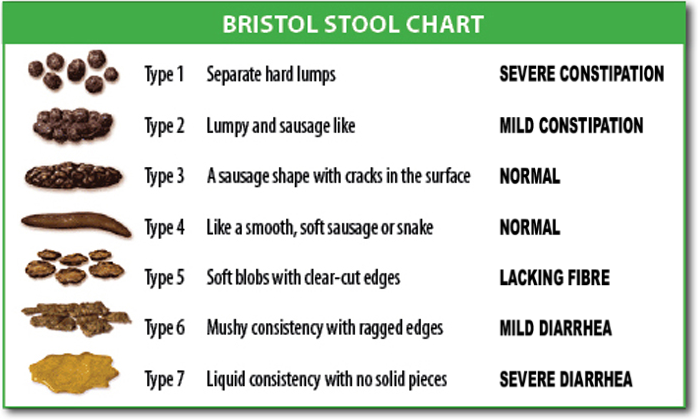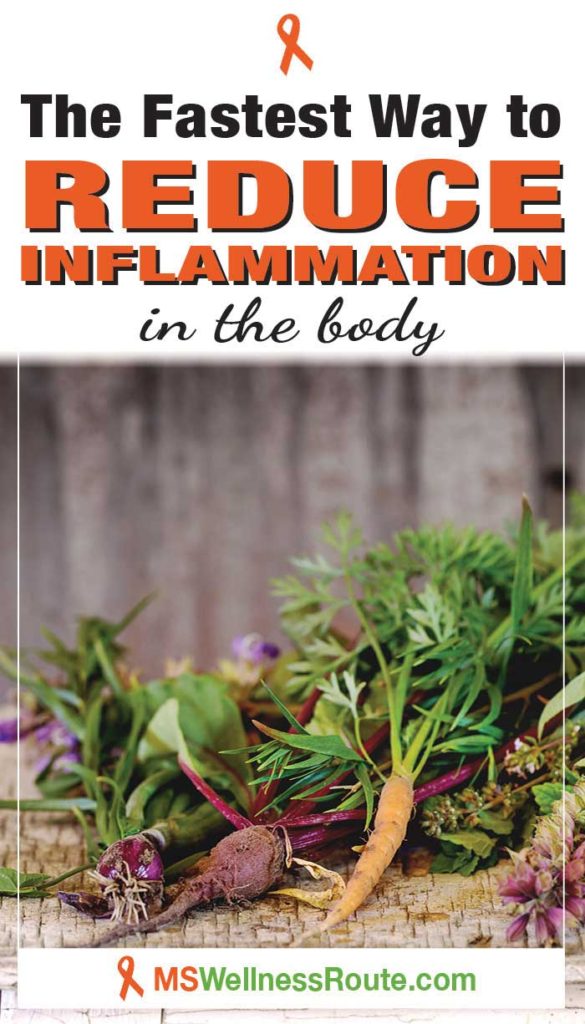Last Updated on November 25, 2023 by Cathy

Multiple sclerosis (MS) is a chronic inflammatory demyelination disease. It attacks the central nervous system leading to severe disability and neurological defects. According to researchers, genetic predisposition and environmental factors lead to MS.
These multi factors include exposure to infectious agents, vitamin deficiencies, and smoking. Nutrition is the best way to fight chronic inflammation. The fastest way to reduce inflammation is by eating an anti-inflammatory diet.
Acute inflammation is part of the body’s healing process. It brings nourishment to the injury. But, when inflammation is long-term it becomes chronic and damages the body.
Chronic inflammation is the root cause of many serious diseases. Including MS, Alzheimer’s disease, heart disease, other autoimmune diseases, and many cancers. Exposure to toxins, lack of exercise, and stress contribute to chronic inflammation.
An anti-inflammatory diet, quality sleep, and exercise can stop the progression of MS and hopefully, reverse some or all of your symptoms. There is no single diet that is perfect for everyone so you need to listen to your body.
Bloating, a headache, or a rash are all signs that something you ate is causing problems with your body. For example, I’m highly sensitive to eggs, as soon as I eat an egg I’m having gut pains and diarrhea within 10-15 minutes. You on the other hand may do fine eating eggs.
Anti-inflammatory Diet
An anti-inflammatory diet isn’t a “diet” it’s a lifestyle change for the better. How you’ve been living led you to MS so it’s time to change. Yes, you can say MS is genetic because it does run in some families.
However, researchers discovered one identical twin may have MS and the other one doesn’t. This proves it was an environmental trigger that led the one twin to get MS. I’m not trying to blame you instead this gives you the power to heal your body.
Possible triggers to MS:
- Diet (processed foods, refined sugar, refined carbs, food allergies, etc.)
- Infections (bacterial overgrowth, parasites, viruses, and yeast overgrowth)
- Environmental Toxins (heavy metals, mold, pesticides, etc.)
- Chronic Stress (especially emotional stress)
- Hormones (vitamin D, insulin, cortisol)
- Genetics (You can’t change your genes but you can change your gene expression by living a healthy lifestyle)
Selecting foods that are healing allows your body to heal. Plus, it gives you more energy, essential fatty acids, fiber, minerals, and vitamins.

What to Eat
Since this isn’t a weight loss diet you don’t need to pay attention to calories. Instead, pay attention to your vegetable, fiber, carbohydrates, and water intake.
Dr. Terry Wahls, the author of The Wahls Protocol, recommends eating 9 cups of vegetables each day. I know it seems like a lot, but it becomes easier when you add vegetables to everything you eat. Add leafy greens to your eggs or mix them in with your ground meat.
Dr. Wahls recommends 3 cups from each food group:
- Leafy greens (collards, kale, spinach, etc.)
- Colorful all the way through (beets, carrots, purple cauliflower, etc.)
- Sulfur (asparagus, broccoli, onions, etc.)
Aim for a wide variety of vegetables to help your microbiome. People with MS have more bad bacteria in their gut than healthy people. This could be due to a leaky gut which allows undigested food and toxins to pass through.
This could be the trigger of your chronic inflammation. Having MS, there’s a good chance you’re also dealing with a leaky gut. To learn the importance of gut health, check out:
The Importance Of Gut Health For Multiple Sclerosis
Eat High Fiber Foods
Food manufacturers advertise cereals as a good choice for high-fiber food. But there are plenty of vegetables and fruit that are high in fiber. Most Americans don’t get enough fiber in their diet.
Fiber also helps with constipation which is a common complaint from patients with MS. Looking at the Bristol Stool Chart you will easily be able to tell if you have healthy bowel movements.

Ideally, you should have 1-2 bowel movements each day. If not eat more fiber, remove any food sensitivities, or eat more resistant starch. If you add resistant starch such as banana flour/powder start slow.
Try to eat 40 grams of fiber each day, you can easily do this by increasing your vegetable intake. Fruit, especially berries like blackberries is also a good source of fiber.
Researchers found that non-fermentable fiber supplementation, early in life, prevents MS. Non-fermentable fiber increases long-chain fatty acids which protect myelin. – MS rates are lower in developing and rural populations where they eat more fiber.
Phytonutrients Reduce Inflammation

To get the maximum benefit from vegetables and fruit eat from the rainbow. In other words, eat produce of every color every day. Think of all the colors from the rainbow and try to include something from each group.
Colorful vegetables and fruits are protected against neurodegenerative diseases such as MS. Plus, they protect us from cancer, heart disease, and environmental toxicity. If you can choose organic to avoid pesticides and GMOs. If you can’t always afford organic buy organic if it is on the Dirty Dozen list.
Drink Plenty of Water
Eating an anti-inflammatory diet along with drinking plenty of water is the fastest way to reduce chronic inflammation. If you struggle with urinary issues start slowly. As you increase your water intake your body will get used to it.
Drinking filtered water will help remove any unwanted impurities. Including fluoride, lead, pesticides, and more. Adding a filter to your faucet or a whole house water filtration system will help. My household is on a personal well but we still use a countertop water filter since we live near farms.
If you don’t like plain water add some fruit or herbs like peppermint to add some flavor. Herbal teas are another excellent source of adding more water to your body. Some of my favorite teas that also reduce stress and help detox include:
- Chamomile – calming
- Lemon ginger – clams upset stomach
- Licorice – helps with a sweet tooth
- Peppermint – calms an upset stomach
- Rooibos – reduces stress
There are herbal teas to help with:
There are many herbal teas to choose from. Make sure you buy one from a reputable source so it doesn’t contain artificial ingredients. I like Traditional Medicinals and Yogi teas.
Quick Links To Information In This Post:
5 Steps To Improve Your Gut Health
Spinach Turkey Burgers
Foods That Are Highest In Fiber
Eat A Rainbow Of Colors
The Fastest Way to Reduce Inflammation in Your Body

The fastest way to reduce inflammation – stop eating foods that cause inflammation. Foods such as gluten/grains, dairy, refined carbohydrates/sugar, legumes, and food sensitivities.
Load up on foods that fight inflammation. What you put in your mouth matters! Eat more vegetables and fruit, foods containing omega-3 such as salmon and trout. Control your blood sugar by limiting treats, fruit, and foods high in carbohydrates.
Make time to exercise each day. Your health should be the most important thing in your life so take the time to exercise. Walking, swimming, tai chi, and resistance training with bands are good choices.
Learn to manage your stress, stress can cause a flare. It’s impossible to avoid all stress but you can learn to manage it. Take deep breaths, meditate, listen to calming music, soak in a warm bath, or read a good book.
You can do this!

Free Wellness Library!
Subscribe for free and I’ll send you the password to my secret library filled with many printables for your wellness journey.
Want to remember this health tip? Pin it to your favorite Pinterest board!

Resources:
https://www.ncbi.nlm.nih.gov/pmc/articles/PMC6041322/
The Fastest Way to Reduce Inflammation in the Body





